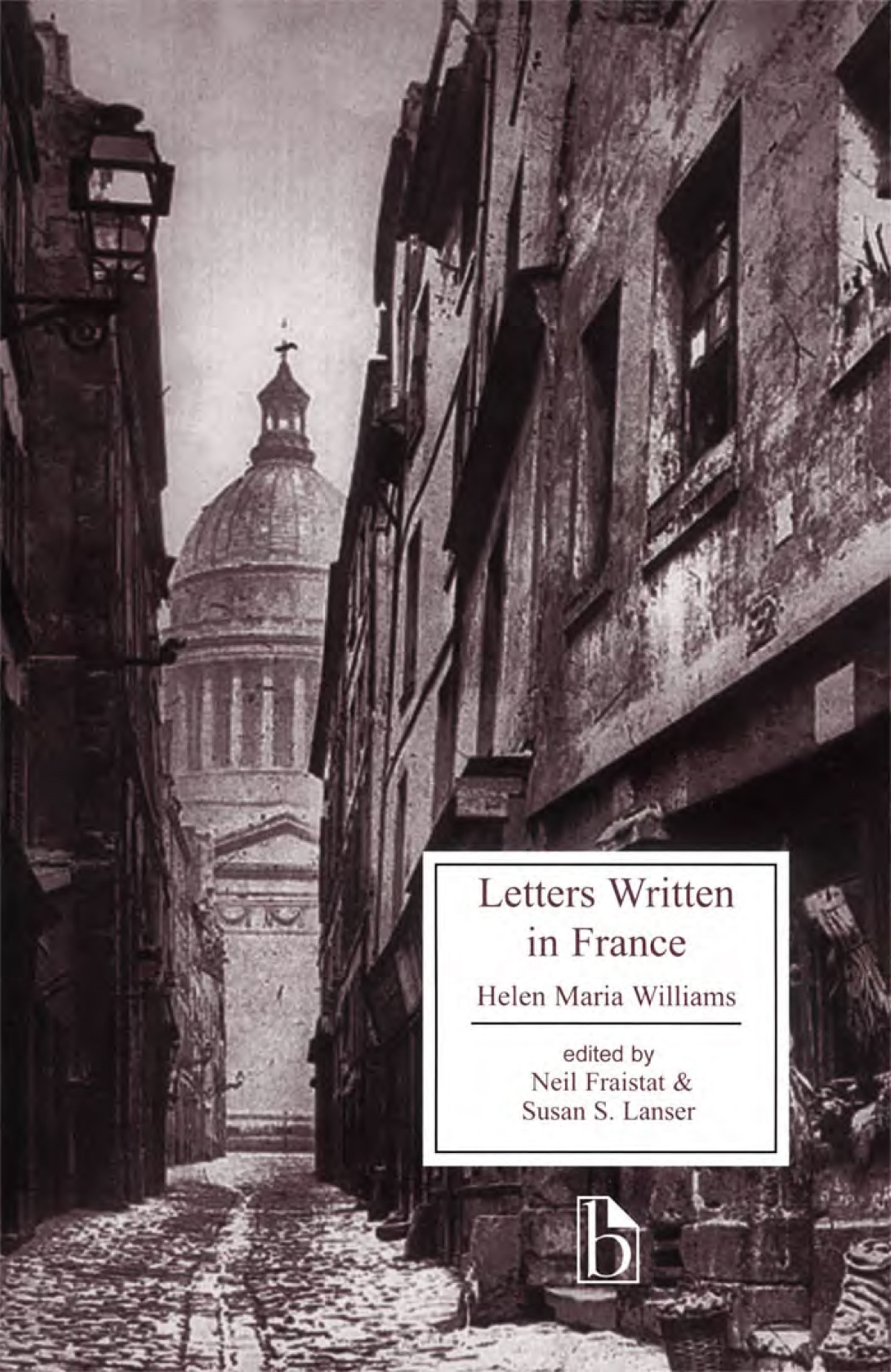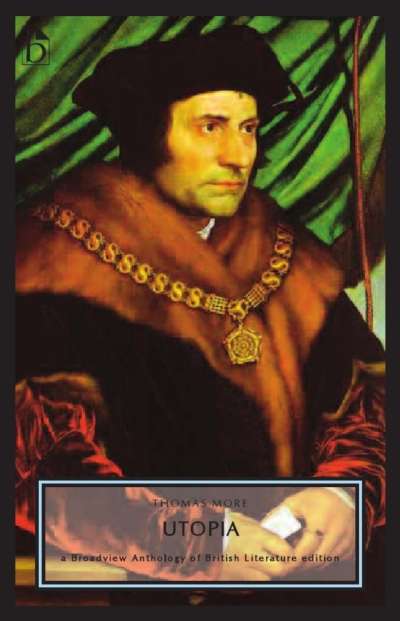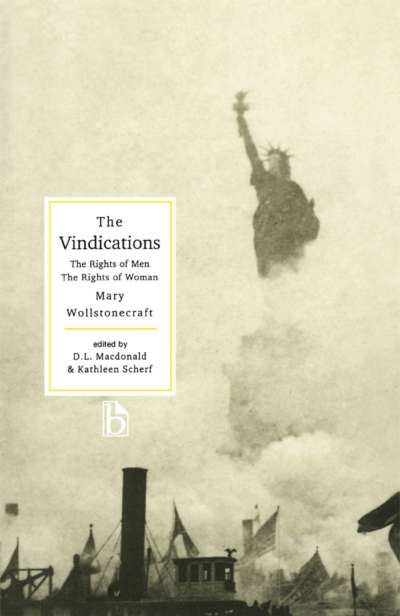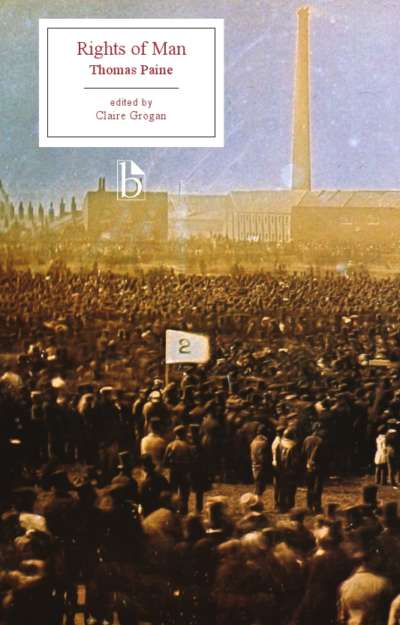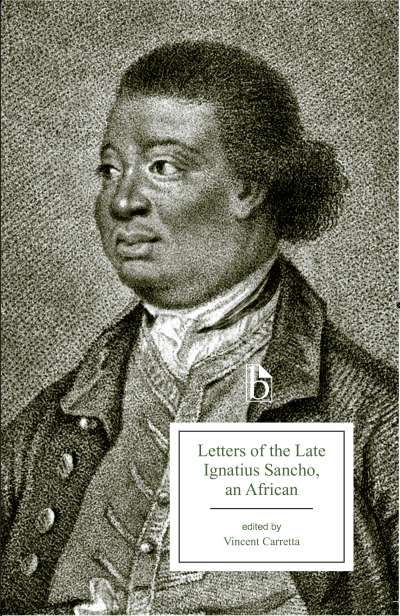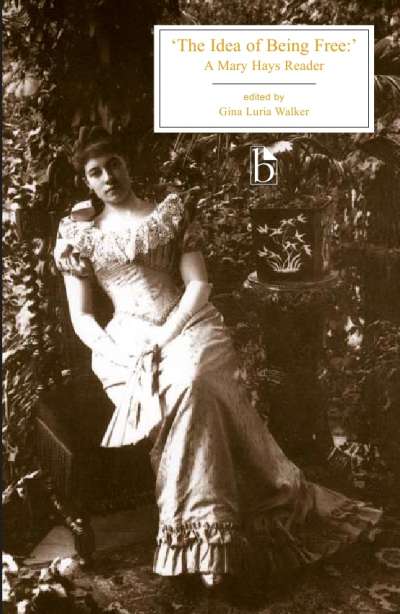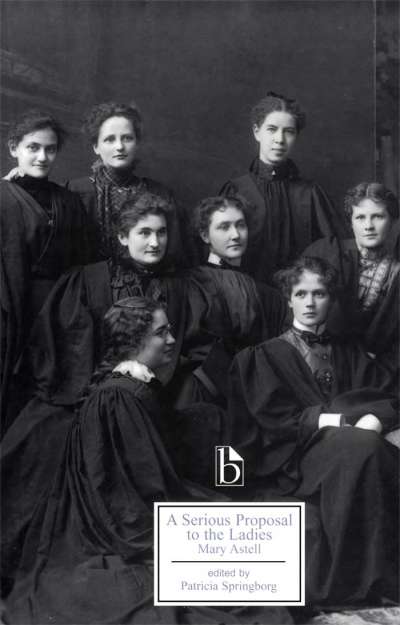Helen Maria Williams was a poet, novelist, and radical thinker deeply immersed in the political struggles of the 1790s. Her Letters Written in France is the first and most important of eight volumes chronicling the French Revolution to an England fearful of another civil war. Her twenty-six letters recounting old regime tyranny and revolutionary events provide both an apology for the Revolution and a representation of it as sublime spectacle.
Comments
“At last, a modern edition of Williams’s absorbing and familiar Letters Written in France. Fraistat and Lanser edit with tact and impeccable scholarship. Their introduction to the French Revolution is a gem in itself, an international ‘thriller’ well designed for today’s reader.” — Nanora Sweet, University of Missouri, St. Louis
“Williams’s eloquent and dramatic eye-witness account of the French Revolution,
Letters Written in France, is a work central to the study of Romanticism, history, and women’s literature. Expertly edited, this splendid edition contains a brilliant, informative introduction that situates Williams in the landscape of revolutionary, literary, and women’s history, offers very helpful scholarly annotations, and is packed with contextual materials. This is another Broadview gem.” — Harriet Kramer Linkin, New Mexico State University
“Williams’s Letters Written in France offered readers in England a sympathetic view of the Revolution, which she hoped would hasten democratic reforms. This new edition will be particularly useful and accessible. Telling excerpts from Burke, Paine, and Wollstonecraft permit us to appreciate the fervor that surrounded political and social debates in the period and to assess the narrative power of Williams’s record of contemporary events. Feminists will especially appreciate the subtle analysis by Fraistat and Lanser of gender in Williams’s epistolary narrative and view of the Revolution, and cultural critics will relish the juxtaposition of reviews, letters, political polemic, and poems. This richly supplemented edition will be an invaluable resource.” — Margaret Higonnet, University of Connecticut
Acknowledgements
Introduction
Helen Maria Williams: A Brief Chronology
Contemporary Historical Events
A Note on the Text
Letters Written in France, in the Summer 1790
Appendix A: Excerpts From Later Volumes of Williams’s Letters from France
- Letters from France: Containing Many New Anecdotes (1792)
- Letters from France: Containing … Interesting and Original
Information, vol. I (1793)
- Letters from France: Containing … Interesting and Original
Information, vol. II (1793)
- Letters Containing a Sketch of the Politics of France
[May 1793-July 1794], vol. I (1795)
- Letters Containing a Sketch of the Politics of France
[May 1793-July 1794], vol. II (1795)
- Letters Containing a Sketch of the Scenes … during the
Tyranny of Robespierre (1795)
- Letters Containing a Sketch of the Politics of France
[July 1794-95] (1796)
Appendix B: Selected Poetry by Williams
- “To Sensibility”
- A Poem on the Bill Lately Passed for Regulating the Slave Trade
- “The Bastille, A Vision” (from Julia, a Novel; Interspersed with Some Poetical Pieces)
- A Farewell, for Two Years, to England. A Poem
Appendix C: Critical Reviews of Letters Written in France
- The Analytical Review
- The General Magazine
- The Monthly Review
- The Universal Magazine
- The Critical Review
- The Gentleman’s Magazine
- The English Review
Appendix D: Other Contemporary Responses to Letters Written in France
- Edward Jerningham, “On Reading ‘Letters Written from France’”
- Hester Thrale Piozzi, from Thraliana
- Two Letters by Anna Seward
- Society of Friends of the Constitution at Rouen
- Laetitia Matilda Hawkins, from Letters on the Female Mind
- William Wordsworth, from The Prelude (1805), Book IX
Appendix E: Contemporary Responses to Williams
- William Wordsworth
- James Boswell
- The Anti-Jacobin Review
- Mary Pilkington
- Henry Crabb Robinson
- Williams’s Obituary in the Gentleman’s Magazine
Appendix F: The French Revolution: Selected Primary Documents
- Declaration of The Rights of Man and Citizen
- Olympe de Gouges, “Declaration of the Rights of Woman and Female Citizen”
- From Address to the National Assembly Supporting Abolition of the Slave Trade
- The Fete de la Federation as described by the London Times
- Beneficial Effects of the French Revolution
Appendix G: The French Revolution: Selected Early British Responses
- Richard Price, from A Discourse on the Love of Our Country
- Edmund Burke, from Reflections on the Revolution in France
- Mary Wbllstonecraft, from A Vindication of the Rights of Men
- Thomas Paine, from The Rights of Man
- Hannah More, from Village Politics
- Anna Barbauld, “To a Great Nation”
- Mary Alcock,“Instructions … for the Mob in England”
Selected Bibliography
Neil Fraistat, of the University of Maryland, has written and edited widely in the field of Romantic literature.
Susan S. Lanser, also of the University of Maryland, has written on eighteenth-century culture and on women writers.

